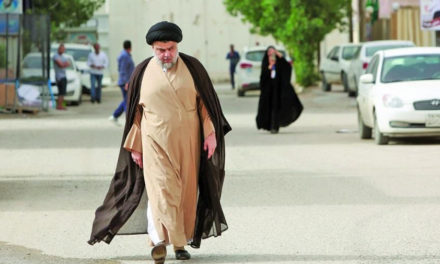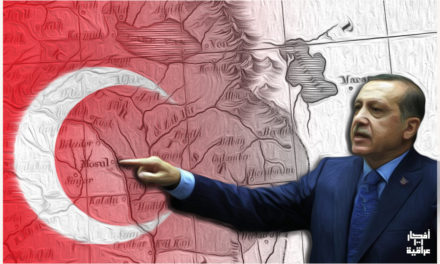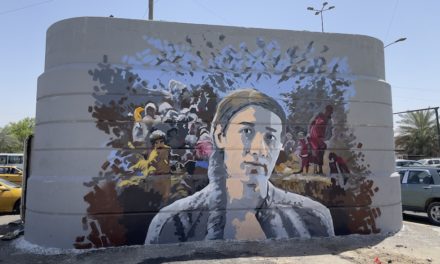(Prime Minister & acting Minister of Defence, Adil Abd Al-Mahdi chairs a contracts committee meeting at the Iraqi Ministry of Defence on February 18, 2019)
There is a mixed wave of pessimism and optimism over the future of Iraq after the first hundred days of Adil Abd Al-Mahdi’s government. The cabinet formation process never finalized due to the nature of fragile agreements made in parliament that hosts contentious alliances. The political will is divided between the wishes of Al-Sairoon bloc headed by the cleric Muqtada Al-Sadr and Hadi Al-Ameri’s Al-Fateh coalition, which represents the political blocs associated with many of the paramilitary forces that comprise the Popular Mobilization Forces.
To simplify a complex situation, the once rivals in the 2018 elections campaign became allies afterwards based on the temporary interests that followed suit. The temporary interests that united the political rivals were characterized by the mutual goal to remove former Prime Minister Haider Al-Abadi from office. However, this fragile alliance was lost quickly when Fateh nominated Falih Al-Fayyadh for the post of Minister of Interior, which was strongly refused by Sadr and his allies.
Despite the efforts to nominate other candidates for Minister of Interior, the major political coalitions have failed to reach a consensus for an alternative, and a major reason why this has been a complicated endeavour is that any agreement amongst Shia parties also needs the support of Sunni factions. However, Sunni political parties lack a united front and have been divided through alliances with the two major Shia alliances of Sadr and Ameri. This has also stalled the nomination of a Minister of Defence. Amongst these political disputes, the National Accord (Al-Wifaq Al-Watani) bloc headed by former Prime Minister Ayad Allawi has become relevant as they perceive the post of Defence Minister as their rightful share. In addition, the National Accord have requested that the Shia blocs waive any demands to re-apply De-Ba’athification screenings on their nominees for the post.
Contention for the post of Defence Minister is led by former parliament speaker Saleem Al-Jibouri who failed to secure a seat in the election despite spending huge sums on his election campaign, and still has not garnered enough political support for his nomination. Today’s Sunni allies of Fateh in the parliament, who were yesterday’s enemies, have other nominees for Defence Minister in mind. Despite holding public and private meetings with various political parties in attempts to nominate a candidate for Minister of Defence and keeping the Minister of Education as part of the Sunni Axis Coalition’s share, there has been little to no consensus reached.
What has made these disputes over ministerial posts more controversial other than the fact they have been ongoing for months is the possibility of Da’ish insurgency returning from the instability caused by keeping the security posts vacant. On top of that, the recent remarks by U.S. President Donald Trump about using Iraq to watch Iran has added another layer of difficulty in finalizing agreements of ministerial security posts.
After the unexpected outcomes of the Warsaw Meeting, which focused more on rallying support in order to face the ‘challenge of Iranian influence in the Middle East’ instead of discussing the security challenges the region is facing, the effort to finalize the Iraqi cabinet has become even more challenging as all eyes are on Iraq again to see how the new U.S.-European approach in the region is reflected in Iraq’s political developments.
If the cabinet remains incomplete by the beginning of the second legislative term of the new parliament, it certainly will become a major hurdle on the path to fulfilling the government program, that promised to provide services and improve the security situation. An incomplete government that is unable to maintain better security could also undo some progress like the opening of the Green Zone, dismantling check points, and the removal of thousands of concrete walls.
While the failure of politicians to swear in the rest of the cabinet will have its negative impact on Iraq’s security, it remains to be seen whether it is the supporters of the U.S., the pro-Iran bloc or an independent Iraq with the capability to play a balancing role in the region will triumph in this battle. Nevertheless, it is imperative for the competing political blocs to reconcile their differences over the Defence and Interior posts as the country enters a crucial phase that will determine whether the victory over Da’ish is fleeting or permanent.
The latter is what Prime Minister Adil Abd Al-Mahdi aspires to achieve, but the challenges facing him are huge, and they translate into a contest between different factions attempting to coerce him into submission or simply waiting for an opportunity that might lead to the withdrawal of confidence in the Prime Minister’s cabinet, something that the Marj’eyya (Shia religious establishment) in Najaf refuses given that it had a decisive say in Abd Al-Mahdi’s path to power and has since been a supporter of his government.

Wael Mazin
Wael Mazin is an Iraqi journalist. He is a researcher in Iraqi political and security affairs and has published several articles in Arab and foreign websites. Mazin has worked for several Iraqi news organizations, most recently NRT Arabic.










